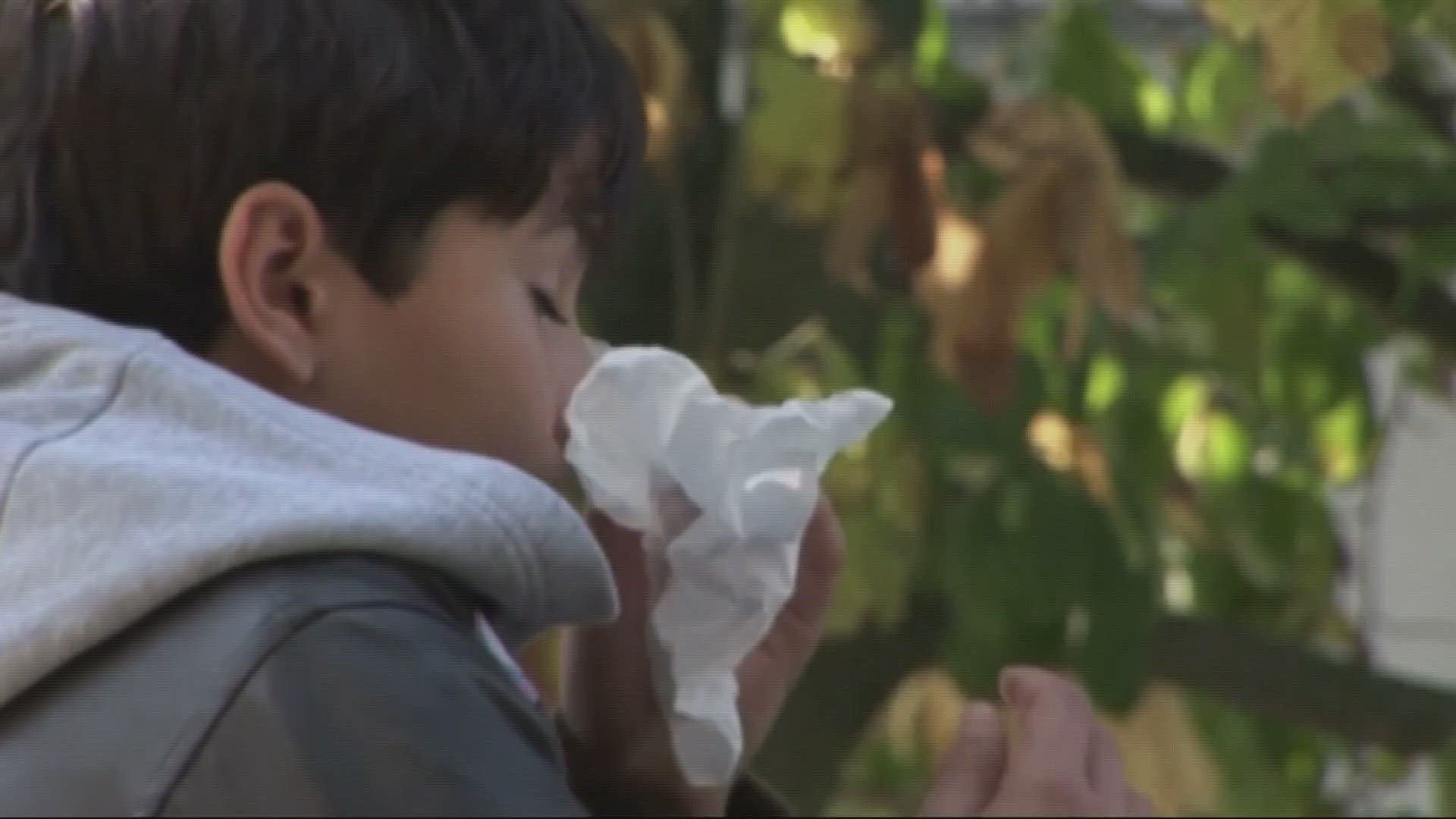SAN ANTONIO — About a quarter of adults in the U.S. suffer from seasonal allergies. Late winter and spring are typically the worst times of the year in south Texas for allergies, but summer allergies can be a problem too.
Normally summer is not a horrible time for allergy sufferers, but the extreme heat has actually made the problem worse.
"This summer has been so hot that these tiny particles, like pollen and mold spores, are moving around quickly," said Dr. Amanda Trott-Gregorio, an allergist with Juniper Allergy.
Some of the more common allergens in a south Texas summer are ragweed, cedar, grass pollen, and mold.
"Dust mites love heat and humidity, so that causes them to thrive and move around more in our pillows and mattresses and produce more dead skin cells that we then inhale," Dr. Trott-Gregorio added.
To lessen their effects wash all of your bedding more frequently or get a dust mite proof encasement for your mattress and pillows.
Texas is ranked as one of the worst states in the country for seasonal allergies. Unlike much of the rest of the country our allergy season is actually year-round. And research has shown that there has been an increase in pollen of about 20% since 1990, only adding to the misery.
Then there's cockroaches.
"Believe it or not, cockroaches shed dead skin cells just like all other living creatures," Dr. Trott-Gregorio said. "We stir up those dead skin cells and they can cause allergic reactions just like pollen or other things we're allergic to."
The most common summer allergy symptoms include itchy eyes, nose, or throat, a stuffy nose, a runny nose, congestion, headaches, sneezing, watery eyes, shortness of breath, and coughing and wheezing. So what do we do?
"It's not too late to fix summertime allergies," Dr. Trott-Gregorio said. "I have some patients right now who are doing a quick immunotherapy buildup and they're getting relief this season."
Dr. Trott-Gregorio also says to avoid being outside early in the morning if you have allergies, because that is the time of day when spores and pollen particles tend to be the highest.

